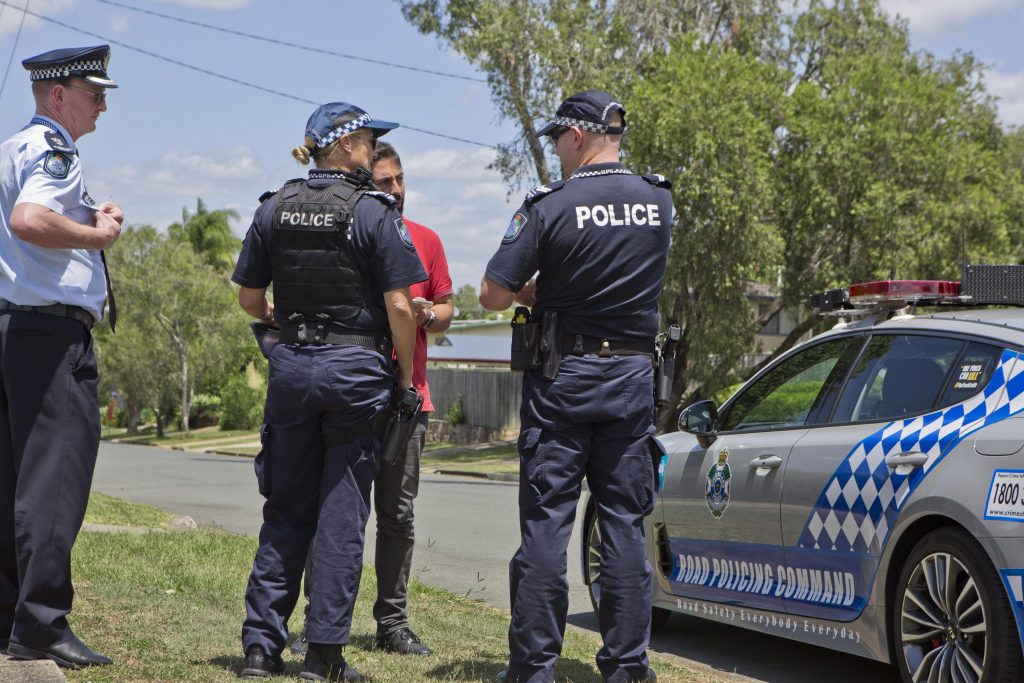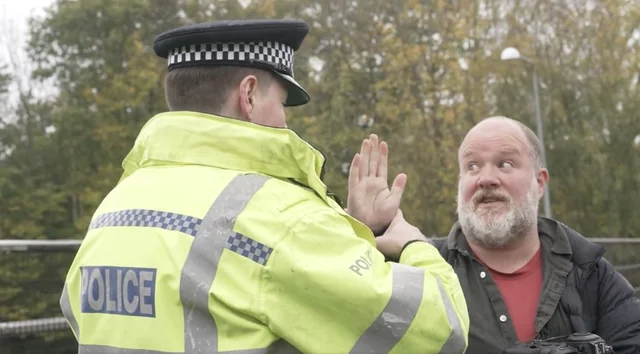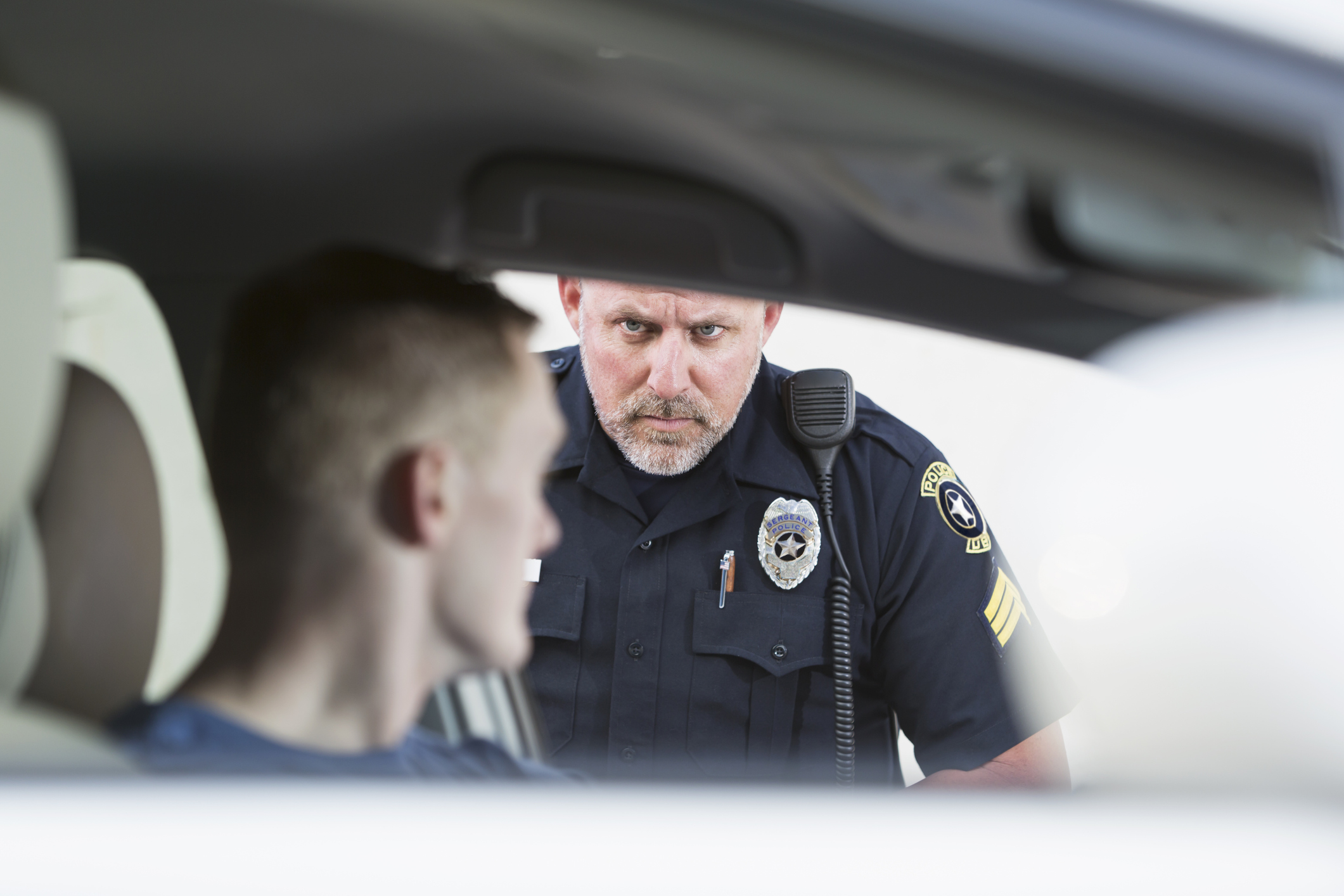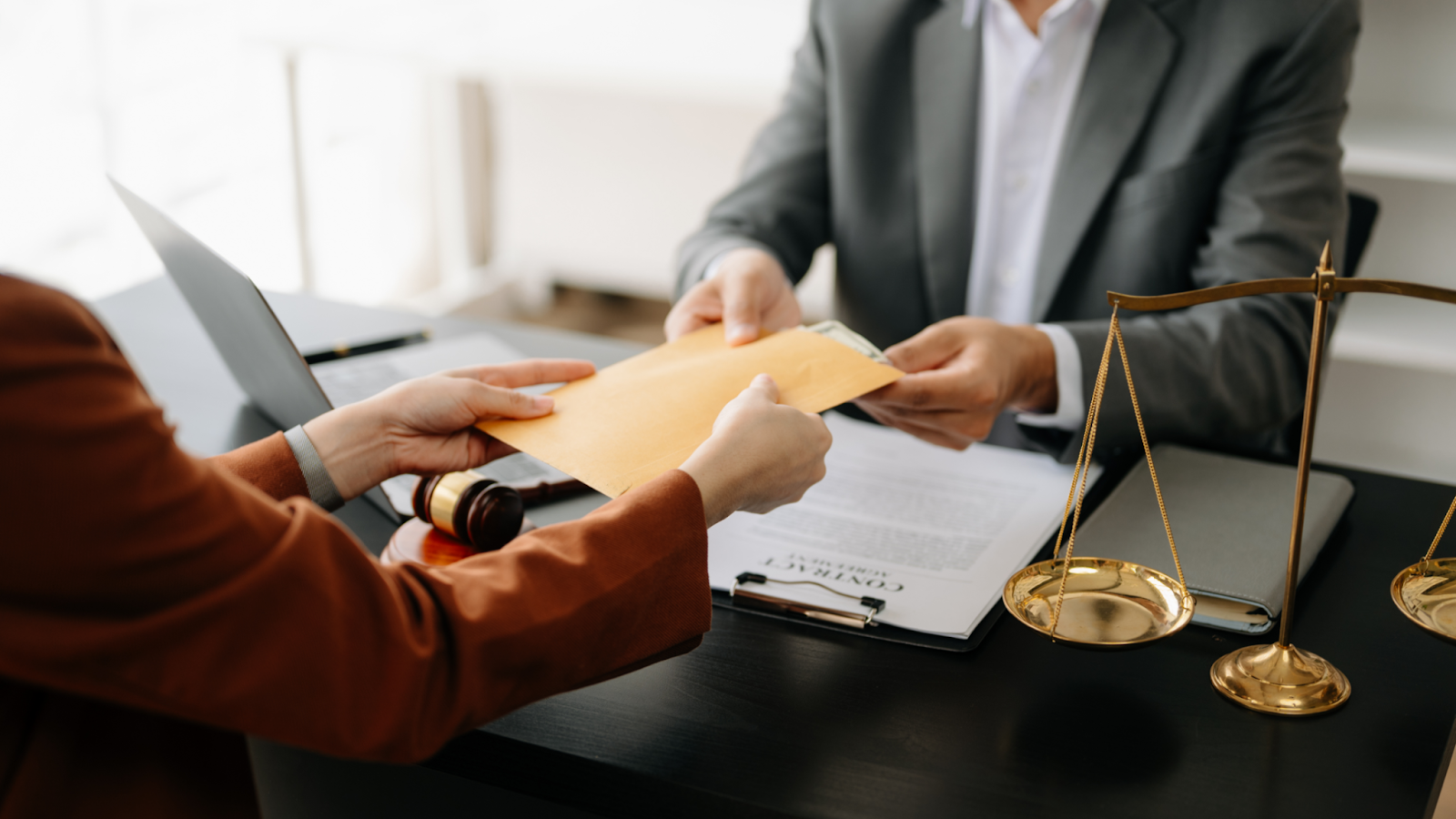Have you ever wondered whether it’s against the law to swear at a police officer in the UK? It’s a question that touches on both individual rights and legal boundaries.
In this context, the Public Order Act of 1986 plays a pivotal role, in defining behaviors that could lead to harassment, alarm, or distress. While the act doesn’t explicitly target swearing, it covers offensive language and conduct that meet certain criteria.
Let’s delve into the details to understand how the law, societal norms, and personal rights intersect in determining the legality of such actions.
Is it against the law to swear at a police officer in the UK?

Swearing at a police officer in the UK is not inherently illegal; however, potential legal outcomes hinge on the context and behavior. Within the UK, employing offensive language or verbally abusing individuals, including police officers, might fall within the scope of the Public Order Act 1986. This legislation encompasses various actions deemed disorderly conduct, encompassing the use of threatening, abusive, or insulting language with the intent to cause harassment, alarm, or distress.
Further, Should your conduct, which includes swearing, be determined as causing harassment, alarm, or distress to a police officer or others, you could face arrest or penalties according to the law. It’s important to note that the interpretation of the law is contingent upon specific circumstances, and law enforcement officers wield discretion to respond based on their evaluation of the scenario.
At last, It is always advisable to treat law enforcement officers and others with respect and to abstain from using offensive language, even if such conduct might not invariably result in legal consequences.
Legal Framework
This legislation addresses various offenses related to public order, including behaviors that intentionally or potentially cause harassment, alarm, or distress to others. Pertinent sections of the act include 4A and 5.
- Section 4A: This section pertains to instances involving verbal or physical threats, abuse, or insults, which are deliberately aimed at harassing, intimidating, or causing distress to an individual. In order to evoke such emotions, the perpetrator must possess a certain level of intention or awareness that their conduct is likely to achieve these outcomes.
- Section 5: Conversely, This part addresses conduct that could harass, alarm, or distress others. It does not require purpose but instead focuses on the behavior’s inherent propensity to cause such reactions in bystanders.
Considering the mentioned legal sections, swearing at a police officer could be seen as falling into these categories depending on the situation and words used. Whether it’s seen as threatening, abusive, or insulting, and if it’s meant to or likely to cause distress, decides the legal consequences under the Public Order Act.
Importantly, how these laws are understood and used can differ depending on each case. Both the police and the legal system have the power to decide if an offense occurred and what actions should be taken, based on their judgment.
Consequences
Regarding potential consequences, the application of the Public Order Act 1986 to cases of swearing at a police officer in the UK can lead to various outcomes. These outcomes are contingent upon the assessment of law enforcement officers and the legal system, with factors such as context and intent being taken into consideration.
Arrest and Charges: In instances where swearing is deemed to have met the criteria outlined in the relevant sections of the Public Order Act, law enforcement has the authority to make an arrest. Subsequently, charges may be brought against the individual under the act’s provisions.
Penalties and Fines: Upon conviction, individuals found guilty of violating the act may face penalties and fines as determined by the legal system. The severity of these penalties can vary based on the nature of the offense and other pertinent factors.
It’s crucial to note that the discretion of law enforcement officers plays a role in how such situations are addressed. Their judgment guides the decision-making process, and outcomes can differ based on their evaluation of the circumstances.
While individuals have the right to freedom of expression,besides this right is balanced against the responsibility to engage in civil and respectful behavior, particularly when interacting with law enforcement officials. This harmony emphasizes how important it is to always act respectfully in order to avoid negative legal consequences.
Precedents and Cases
Legal Rulings: In several instances, individuals have faced legal consequences when their swearing was deemed to have met the criteria outlined in the Public Order Act. Courts have upheld convictions when evidence indicated that the swearing was intended or likely to cause harassment, alarm, or distress.
Varied Outcomes: The outcomes of these cases have varied based on factors such as the severity of the language used, the context of the interaction, and the perception of the behavior by both the officer and any witnesses present. Also, Some individuals have been fined or received community orders, while others have been cautioned.
Case-by-Case Analysis: The legal system conducts a case-by-case analysis, considering the unique circumstances of each situation. The intent behind the swearing, the behavior’s impact on those involved, and the role of law enforcement officers’ discretion all contribute to the final judgment.
Precedent for Behavior Standards: These cases also establish a precedent for acceptable behavior standards when interacting with law enforcement officers. While individuals have the right to express themselves, this right must be exercised within the bounds of civility and respect for authority figures.
Importance of Respectful Conduct

Fostering Positive Relationships: Engaging in respectful behavior creates a foundation for positive interactions between individuals and law enforcement. Mutual respect promotes effective communication and cooperation, contributing to the smoother resolution of situations.
Mitigating Conflict: People can lessen the possibility of escalation and conflict by treating encounters with dignity. Respectful behavior lessens the possibility of conflicts that can result in legal ramifications.
Enhancing Public Safety: Respectful behavior plays a crucial role in enhancing public safety by fostering a sense of order and cooperation. This, in turn, enables law enforcement officers to carry out their responsibilities efficiently, ultimately safeguarding the welfare and security of the community.
Avoiding Legal Consequences: Treating police officers with respect aligns with legal obligations outlined in acts like the Public Order Act 1986. This approach reduces the risk of inadvertently crossing legal boundaries and facing penalties.
Role Modeling: People provide a good example for others to follow by acting respectfully. Gratitude is an example of behavior that encourages others to act similarly, especially in challenging situations. As a result, a culture of respect and cooperation is fostered.
Effective Communication: Good relationships work as a bridge, allowing people and law enforcement to communicate freely and effectively. This link is essential for improving understanding of other viewpoints and working together to find peaceful solutions.
Upholding Personal Dignity: Honoring police officers recognizes their job and contribution to society. At the same time, it protects an individual’s dignity by treating relationships with politeness.
Rights and Freedoms
Freedom of Expression: Freedom of expression is a fundamental human right that allows individuals to voice their thoughts, opinions, and ideas without censorship or interference. It is enshrined in various international human rights documents and national constitutions, including the European Convention on Human Rights.
Balancing Act: However, this freedom is not absolute. It must be balanced against other important rights and considerations, such as the right to public order, security, and protection from harassment. Laws like the Public Order Act 1986 aim to strike this balance, ensuring that freedom of expression does not lead to disorder or harm.
Limitations in the Interest of Society: The limitation of freedom of expression is often necessary to prevent harm to individuals, maintain public order, and protect the rights and well-being of others. This includes instances where expressions may cause distress, incite violence, or lead to chaos.
Respectful Expression: Considering the limits of personal freedom requires the art of communicating one’s opinions in a way that upholds the rights and dignity of others. This entails effectively articulating thoughts without using inappropriate language or engaging in behaviors that may cause harassment or upset.
Democratic Society: Furthermore, In a democratic society, the regulation of freedom of expression is intended to strike a balance between individual rights and the collective interests of the community. This equilibrium guarantees that everyone’s rights are protected while also maintaining public order.
Legal Protections: Finally, in order to contribute to a harmonious community, it must be understood to comprehend the legal constraints on freedom of expression. This comprehension helps to prevent potential legal penalties. Individuals can appropriately utilize their freedom to express themselves without infringing on the rights of others by adhering to these legal restrictions, promoting a balanced and peaceful coexistence.
FAQ
Can swearing at a police officer lead to an arrest?
Yes, if the language is deemed offensive or threatening, it can lead to arrest and potential prosecution.
Can a person be fined for swearing at a police officer?
Yes, if found guilty, a person can be fined as a penalty for swearing at a police officer.
Is intent important when determining the offense of swearing at an officer?
Yes, the intent behind the language used can influence whether an offense has been committed.
Is swearing at a police officer considered a more serious offense than general swearing?
Yes, because it can be seen as obstructing the police in their duties, the offense of swearing at an officer can be considered more serious.
Can context impact whether swearing at a police officer is considered an offense?
Yes, context plays a role in determining whether the language used is offensive or threatening.
Are there any exceptions or defenses for swearing at a police officer?
No, there are generally no legal defenses for using abusive or threatening language toward a police officer.
Do these laws apply to interactions online or through social media as well?
Yes, the same laws can apply to online interactions if they involve abusive or threatening language directed toward a police officer.
Is the penalty for swearing at a police officer the same for everyone?
No, the penalty can vary based on factors such as the severity of the language used and any previous criminal history.
Conclusion
Swearing at a police officer in the UK is a nuanced issue involving legal frameworks and societal norms. The Public Order Act of 1986 addresses behaviors causing distress, including disrespectful language. While not explicit, the law covers such conduct.
On top of that, Respectful behavior towards law enforcement is emphasized. Balancing free expression with authority is key for productive relationships and public safety.
Understanding the legal consequences of cursing an officer extends to broader ideas of rights and responsibilities. Considering law enforcement within the bounds of regulations promotes a peaceful society that values the rights to individual expression and the well-being of the community.











